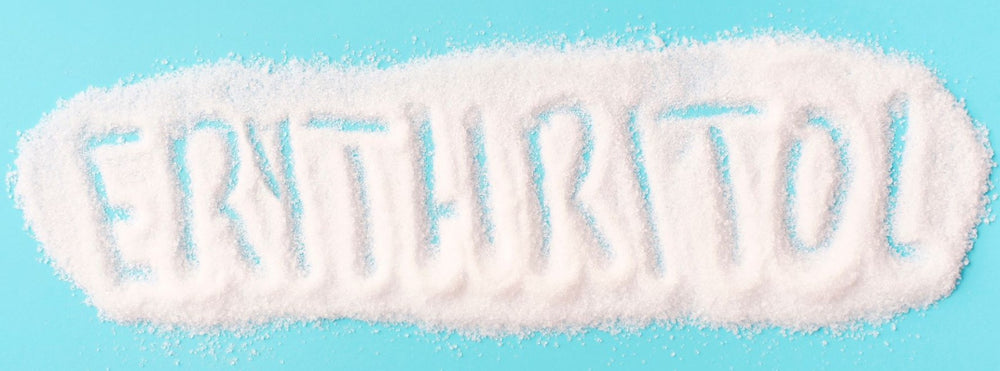How erythritol may negatively affect your heart health

Yet another study has shown that when we get cute with our food, unintended consequences are possible.
What studies have found
The study, just published in Nature Medicine, examined the health effects of erythritol, a common sweetener found in many processed foods. Investigators looked at people at increased baseline cardiovascular risk and found higher event rates in those consuming erythritol.
This finding does not definitively prove causation - but the additional discovery that enhanced platelet reactivity and aggregation is seen in individuals with higher circulating erythritol levels points to a plausible mechanism of action. Platelets are blood components that are responsible for the formation of blood clots and when they are stimulated to aggregate in heart arteries or brain arteries they can cause heart attacks and strokes (respectively).
To put this in perspective, increased platelet reactivity and aggregation is felt to be presponsible for the increased risk of cardiovascular events related to smoking!
An overview of erythritol
Erythritol is not a sugar but rather a “sugar alcohol” which can be found naturally in miniscule amounts in many fruits and vegetables. Erythritol can also be manufactured by fermenting corn or wheat starch, creating an ingredient that can be added to processed food items in un-naturally high levels.
Because it has no effect on blood sugar while delivering a lot of sweetness with almost no calories, erythritol has become a go-to additive in foods touting reduced calorie content, those designed for diabetics, and those following a keto diet. Because it has no unpleasant taste notes, erythritol is also used as a component of other artificial sweeteners that would otherwise be less pleasant tasting on their own. And because it is "natural", it has also been generally regarded as safe by food manufacturers and the FDA.
Foods that contain erythritol
Some familiar items that contain erythritol include Truvia®, Splenda®, Vitamin Water Zero®, and Halo Top Ice Cream®, but any chewing gum, jelly, chocolate, hard candy, ice cream, yogurt, diet drink or flavored water could contain this ingredient. Because erythritol is not a sugar and because the inclusion of “sugar alcohols” on the Nutrition Facts Panel is voluntary, you need to look in the Ingredient List to determine if the food you are eating contains this substance. Seeing “sugar alcohols” in the ingredient list may be the only clue that erythritol is present in the food.
If you'd like to lower your intake of this additive and are wondering what to substitute for erythritol, it’s certainly not another zero/low calorie sweetener! The more we find out about non-nutritive sweeteners, the more problematic they appear.
The downsides of artificial sweeteners
For example, we also know that some artificial sweeteners negatively impact GLP-1 production. GLP-1 is an important gut hormone that regulates satiety and acts to limit the rise of blood sugar after meals. Artificial sweeteners attenuate GLP-1 production, leading to disproportionate increases in circulating blood sugar levels and blunted satiety signals following food consumption. To underscore how central GLP-1 is to blood sugar control and weight gain, the latest “it” drug, semaglutide (Ozempic/Wegovy) - which causes people to lose weight seemingly without even trying - is just the synthetic version of this hormone.
How to satisfy your sweet tooth naturally
The best way to satisfy your sweet tooth without adding sugar (or sugar substitutes) is to eat foods that are naturally candy-like but come with a whole host of beneficial nutrients as well as fiber. Grapes, pineapple, mangos, bananas, melon, cherries, apples, pears, plums, peaches, figs and even cherry tomatoes can be incredibly sweet in their fresh forms, while dried raisins, dates and apricots can be even sweeter than actual candy.
Try Step One Foods
At Step One Foods, the sweetness of our products comes from ingredients like dates, raisins, bananas and even carrots. The apple juice concentrate present in dried blueberries and cranberries, though technically an added sugar, is there not for sweetness but for maintaining moisture so the dried berries you're eating are not hard as rocks.
At Step One we never get cute with our foods. Because we're serious about your health.

Tested & Proven Results.
- Cardiologist formulated
- Supported by over 500 publications
- Clinically-proven, in a double-blind randomized trial with Mayo Clinic and The University of Manitoba
80% of participants lowered their cholesterol in just 30 days. With just two servings per day, Step One Foods offers a proven-effective way to naturally lower LDL (bad) cholesterol.
Get heart health tips and articles like this, delivered right to your email.
New articles every week.
You may also like...

The Next Super Food: How Pecans Help Lower Cholesterol

You don’t need to avoid foods with cholesterol…except for these



